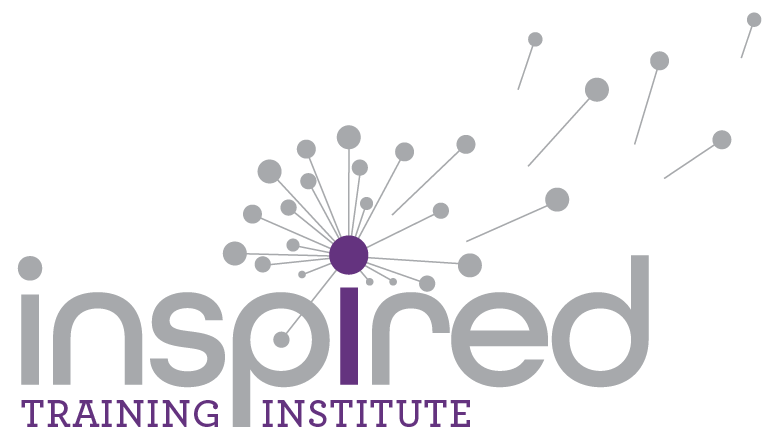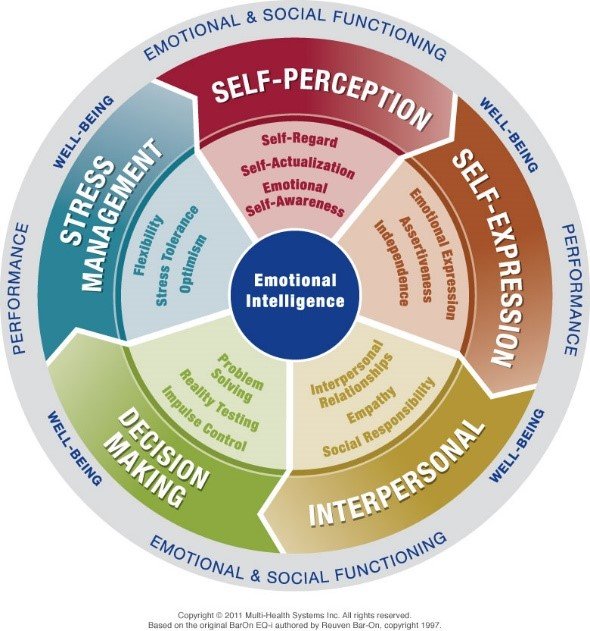Mastering Emotional Intelligence: A Key Leadership Advantage
In today’s interconnected and fast-paced business world, the conventional measures of intelligence are no longer sufficient to guarantee effective leadership. The concept of Emotional Intelligence (EQ) has become a pivotal force in defining successful leadership. Unlike traditional views of intelligence, EQ focuses on a leader’s ability to be acutely aware of their emotions, to control and adapt them, and to manage relationships judiciously and empathetically.
As a more mature person today, I reflect on my leadership journey and recognize the impact of my low EQ earlier in my career. Of the five domains of EQ, I sorely lacked understanding of my Interpersonal EQ domain, specifically I disregarded the importance of interpersonal relationships. As a novice leader, I thought I could move initiatives through sheer will. Over thirty years later, my heart is sad that I ran through people rather than finding ways to run with them. Knowing what I know today, we could have not only met the initiatives more effectively together but also invented new ones. This blog post explores how mastering EQ can be a game-changer in leadership, providing a substantial edge in the dynamics of business management.
The Significance of Emotional Intelligence in Leadership
The significance of Emotional Intelligence in leadership cannot be overstated. Leaders with high EQ are adept at understanding their own emotions and how these emotions can influence their thoughts and actions. More importantly, they possess the sensitivity to perceive and effectively interpret the emotional states of their team members. This skillset is invaluable in creating a positive work environment, fostering strong team dynamics, and enhancing employee engagement. Moreover, emotionally intelligent leaders are often more adaptable to change, better at conflict resolution, and adept at building and maintaining stronger relationships within their organizations.
Navigating Leadership Challenges with Emotional Intelligence
Leadership is fraught with challenges – from managing diverse teams to handling workplace conflicts and driving change. Emotional Intelligence serves as a compass in this complex landscape. Leaders who harness the power of EQ can navigate through stressful situations with composure, guide their teams through periods of uncertainty, and resolve conflict with a level of empathy and understanding that preserves relationships. This approach not only ensures smoother day-to-day operations but also contributes to long-term organizational health and stability.
Future-Forward Leadership: Emotional Intelligence for Industry Evolution
As industries evolve and workplaces become increasingly diverse and technologically driven, the demand for emotionally intelligent leadership is at an all-time high. Such leaders are seen as pivotal in steering organizations through the waves of digital transformation and cultural shifts. They are the ones who can champion innovation while maintaining an organizational ethos that values emotional well-being, inclusivity and collaboration. This future-forward approach to leadership, rooted in Emotional Intelligence, is not desirable but essential for sustainable growth and success in the 21st century. In fact, a study conducted by Bradberry found that most executives that are promoted have the least Emotional Intelligence, even though EQ is a strong predictor of performance and great leadership. This means that there is a golden opportunity for companies to remain and grow competitively by recognizing, developing, and supporting leaders to become more emotionally intelligent.
Harnessing Emotional Intelligence for Transformative Leadership
In summary, Emotional Intelligence is not just an optional leadership skill but a fundamental element for modern leadership success. It is about transforming the traditional leadership paradigm to one that values self-awareness, empathy, and interpersonal skills as much as strategic thinking and decision-making. As we look to the future, leaders who continually invest in developing and mastering their emotional intelligence will be the ones shaping successful, resilient, and adaptive organizations. The call to action for current and aspiring leaders is clear: Invest in cultivating your Emotional Intelligence to become a more effective, empathetic, and transformative leader.
While I have thankfully developed my shortcomings within the Interpersonal EQ domain, I continue to find a plethora of opportunities to fine tune or completely overhaul in the five EQ domains. For instance, I have recently discovered that my self-actualization (ability to realize my potential capabilities) domain needs some additional work. Over this past year, I have recognized that I have somehow let my sense of adventure, vivaciousness, and excitement in living be placed on the back burner. For some reason I decided that putting my head down and plodding forward was what I needed to do rather than to embrace difficulties with a lively and enthusiastic attitude! Because of this, I am embracing the word “zest” and all the positivity this concept brings forward. I invite you to help me to remain cognizant of my efforts in growing my zest and enhancing my EQ in 2024.
If you would like assistance in understanding your level of EQ, please contact us.


